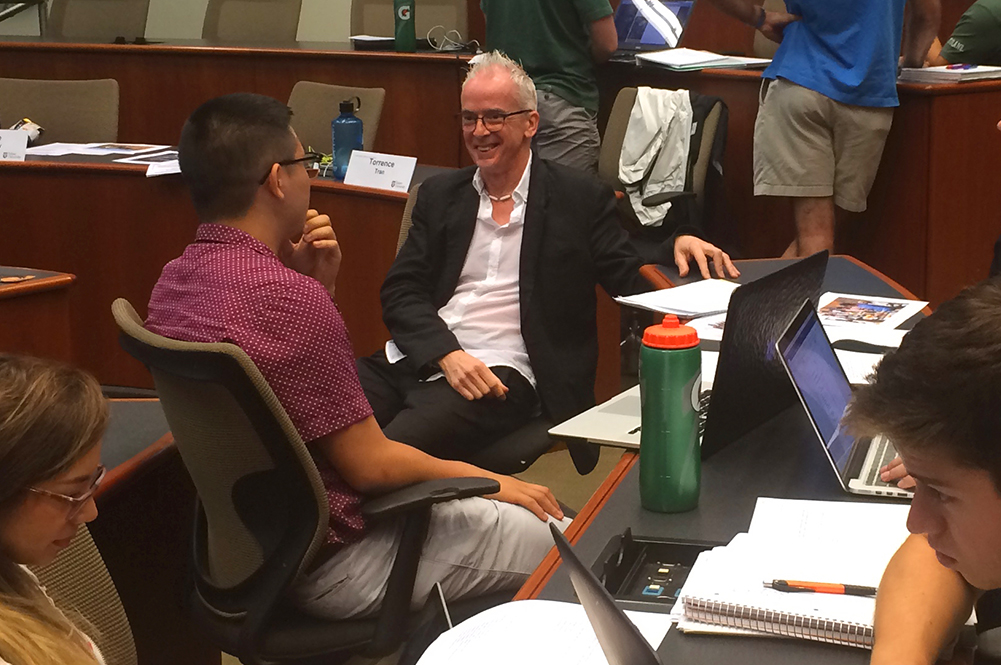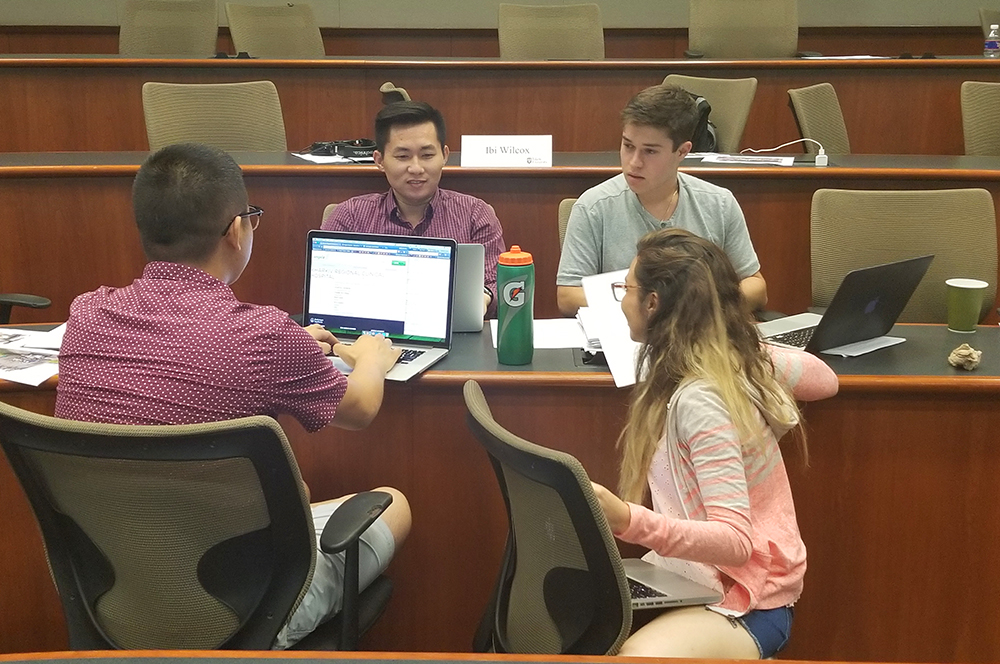The challenge of bringing health care to the developing world

As a clinical nurse specialist and educator with the Novick Cardiac Alliance, Frank Molloy leads international teams of volunteer medical professionals into developing countries to perform surgery on children suffering from life-threatening heart defects. In its 25 year existence, the organization has sent surgical teams to more than 30 different countries, saving the lives of more than 7,000 children in the process.
But in a presentation to MD/MBA students at Tulane University’s A. B. Freeman School of Business in June, Molloy said the organization’s biggest challenges aren’t necessarily medical.
“This is a surgical procedure that can be taught to a trainee surgeon,” Molloy explained. “It’s one of the first surgeries he’ll learn how to do independently, and it can be done with a very low mortality.”
The real challenge, Molloy said, is the business of health care.
Sending medical teams into developing countries, Molloy said, is an exceptionally complex endeavor, one that encompasses fund raising, intercultural communication, operations management and logistics, resource allocation, financial management, human resource management, strategy and leadership.
Molloy’s lecture was part of the seminar Special Topics in Health Care, which introduces students in the Freeman School’s four-year accelerated MD/MBA program to issues involving the intersection of business and health care.
“The course is designed to help the students take what they’re learning in their business classes and wrap it into a healthcare context,” says instructor John Clarke, professor of practice and associate dean for graduate programs at the Freeman School. “Here, the topic may initially seem to be about social entrepreneurship or just doing good around the world, but it’s really very complex because of the business components of it. If the students focus on the surgical procedure, they’ll miss 90 percent of the problem.”
“If you had just doctors in the room, they’d be focusing on how many O.R. nurses do I need or what equipment do I need,” adds co-instructor Marc Kahn, Peterman-Prosser Professor of Medicine and associate dean for student affairs at Tulane School of Medicine. “They’re not going to think about the other aspect these guys are thinking about.”

To help students better understand the challenges medical professional like Molloy face, Clarke and Kahn had them work in teams to develop business plans to establish sustainable pediatric congenital heart disease treatment capabilities in Libya, Ukraine, Macedonia and India. To create those plans, the student had to consider not just the treatment but also who the patients would be, where the care would be provided, who would provide the care, which partners would be required, how the endeavor would be funded, and how all the necessary equipment and services -- everything from biomedical equipment to drugs to lab work -- would be provided.
“The biggest issue wasn’t the actual medicine that was being practiced,” says Leland Chan (MD/MBA ’20). “It’s more than business issues and logistics that come into play when you get into practicing medicine abroad or as part of a medical mission. It’s much more about resource allocation because resources are very limited.”
“Sometimes, the ability to do great work is hinged on the ability to build the foundation for that work,” added Chad Becnel (MD/MBA ’20). “What the Novick Cardiac Alliance had to do was more about operations and figuring out how to get this rolling before they can do their medical job. I think that’s what we as MBA students benefit from — the ability to assess the big picture. Learning the two disciplines gives us a widened scope of awareness.”
The Freeman School and Tulane School of Medicine established the four-year accelerated MD/MBA program in 2015. The program, which enables students at Tulane School of Medicine to earn an MBA with their medical degree, is one of a very small number of four-year MD/MBA programs.